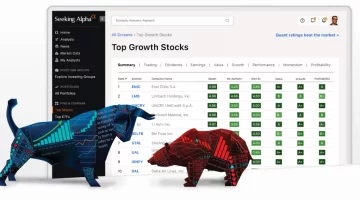Investment Property Mortgage Rates (2024): Current Trends and Future Predictions

Investing in property is a time-honored way of building wealth. However, it's not just about finding the right property; understanding the financial aspects, particularly investment property mortgage rates, is crucial. These rates can significantly impact the profitability of your investment, making it essential to stay informed and understand how they work.
Understanding Investment Property Mortgage Rates
Investment property mortgage rates are the interest rates applied to loans used to purchase or refinance an investment property. These properties are typically bought to generate rental income or appreciate in value over time. Examples of investment properties include single-family homes, duplexes, triplexes, and apartment buildings rented out to tenants.
Investment property mortgage rates are usually higher than mortgage rates for primary residences. This is because lenders consider them riskier. Borrowers are more likely to default on investment property loans, and economic hardships can affect a renter's ability to make rent payments. As a result, these types of home loans are more likely to default during hard economic times.
Several factors influence investment property mortgage rates. These include the borrower's creditworthiness, the down payment amount, and the type of investment property. As a rule of thumb, you can expect the interest rate on your investment property to be at least 0.50% to 0.75% higher than the rate on your primary mortgage.
Current Trends in Investment Property Mortgage Rates

As of mid-2023, investment property mortgage rates typically start around 0.50% to 0.75% higher than primary mortgage rates. For example, if the current rate for a primary residence is 5.5%, buyers can expect interest rates for a single-unit investment property to start around 6.0% to 6.25%.
However, these are general guidelines, and rates can vary significantly from lender to lender and from one borrower to another. It's important to shop around to ensure you get a fair mortgage rate on your investment property.
In the U.S., Fannie Mae and Freddie Mac play a significant role in setting guidelines for most mortgages, including investment properties. The fees they charge directly affect the final interest rate you pay. Due to the increased risk associated with investment properties, Fannie and Freddie charge higher fees on these transactions, which trickle down to you as a higher interest rate.
How to Navigate Investment Property Mortgage Rates

Navigating investment property mortgage rates can be a complex process, but with the right approach, you can secure a favorable rate that enhances the profitability of your investment. Here are some tips to help you navigate these rates:
Firstly, it's important to compare rates from different lenders. Rates can vary significantly from one lender to another, so shopping around can help you find the best deal. Online platforms and mortgage brokers can be useful tools for comparing rates.
Secondly, consider your financial profile. Lenders look at factors like your credit score, debt-to-income ratio, cash reserves, and loan-to-value ratio when determining your mortgage rate. Improving these factors can help you secure a lower rate. For example, a higher credit score or a larger down payment can result in a lower interest rate.
Finally, consider the type of investment property and the loan you're getting. Different types of properties and loans come with different rates. For instance, single-family homes typically have lower rates than multi-unit properties. Similarly, fixed-rate loans often have lower rates than adjustable-rate mortgages.
The Future of Investment Property Mortgage Rates

Predicting the future of investment property mortgage rates can be challenging, as they are influenced by a variety of economic factors. However, understanding current trends and economic conditions can provide some insight.
Currently, investment property mortgage rates are influenced by factors such as government support for the consumer mortgage market, economic conditions, and the policies of entities like Fannie Mae and Freddie Mac. Changes in these factors could potentially impact future rates.
For example, changes in government support for the consumer mortgage market could lead to changes in investment property mortgage rates. Similarly, shifts in economic conditions, such as changes in the unemployment rate or inflation, could also impact these rates.
While it's impossible to predict exactly what will happen, staying informed about current trends and future predictions can help you make more informed decisions about your investment property.
Frequently Asked Questions
1. What is an investment property mortgage rate?
An investment property mortgage rate is the interest rate applied to a loan used to purchase or refinance an investment property. These properties are typically bought to generate rental income or appreciate in value over time.
2. Why are investment property mortgage rates higher than primary mortgage rates?
Investment property mortgage rates are typically higher than primary mortgage rates because lenders consider them riskier. Borrowers are more likely to default on investment property loans, and economic hardships can affect a renter's ability to make rent payments.
3. How can I get a lower investment property mortgage rate?
You can potentially secure a lower investment property mortgage rate by improving your financial profile (such as your credit score or down payment amount) and shopping around to compare rates from different lenders.
4. How are investment property mortgage rates determined?
Investment property mortgage rates are determined by a variety of factors, including the borrower's creditworthiness, the down payment amount, the type of investment property, and the current economic conditions.
5. What is the future of investment property mortgage rates?
The future of investment property mortgage rates is influenced by a variety of economic factors, including government support for the consumer mortgage market, economic conditions, and the policies of entities like Fannie Mae and Freddie Mac. Staying informed about these trends can help you anticipate potential changes in rates.
6. Where can I find the most current investment property mortgage rates?
The most current investment property mortgage rates can typically be found on the websites of various lenders or through online platforms that compare rates from different lenders. It's also a good idea to consult with a financial advisor or mortgage professional for the most accurate and up-to-date information.
Conclusion
Understanding and navigating investment property mortgage rates is a crucial aspect of real estate investing. These rates significantly impact the profitability of your investment, making it essential to stay informed and understand how they work.
According to investment experts who write for us on investment, Investment property mortgage rates are typically higher than primary mortgage rates due to the increased risk associated with these types of loans. However, by improving your financial profile and shopping around for the best rates, you can secure a favorable rate that enhances the profitability of your investment.
Current trends indicate that investment property mortgage rates are influenced by a variety of factors, including government support for the consumer mortgage market, economic conditions, and the policies of entities like Fannie Mae and Freddie Mac. Staying informed about these trends can help you anticipate potential changes in rates and make more informed investment decisions.
In conclusion, while investing in property can be a profitable venture, it's not without its complexities. Understanding investment property mortgage rates is a key part of this process. By staying informed about current trends and future predictions, you can make smarter investment plans for short term or long term and maximize the profitability of your investment property.
This concludes our in-depth look at investment property mortgage rates. Whether you're a seasoned investor or just starting out, we hope this article has provided valuable insights to help you on your investment journey.
Please note that this article is based on the most recent information available as of mid-2023. For the most accurate and up-to-date information, it's always a good idea to consult with a financial advisor, such as Plan D Investments, or mortgage professional.
More to Read:
Previous Posts:






